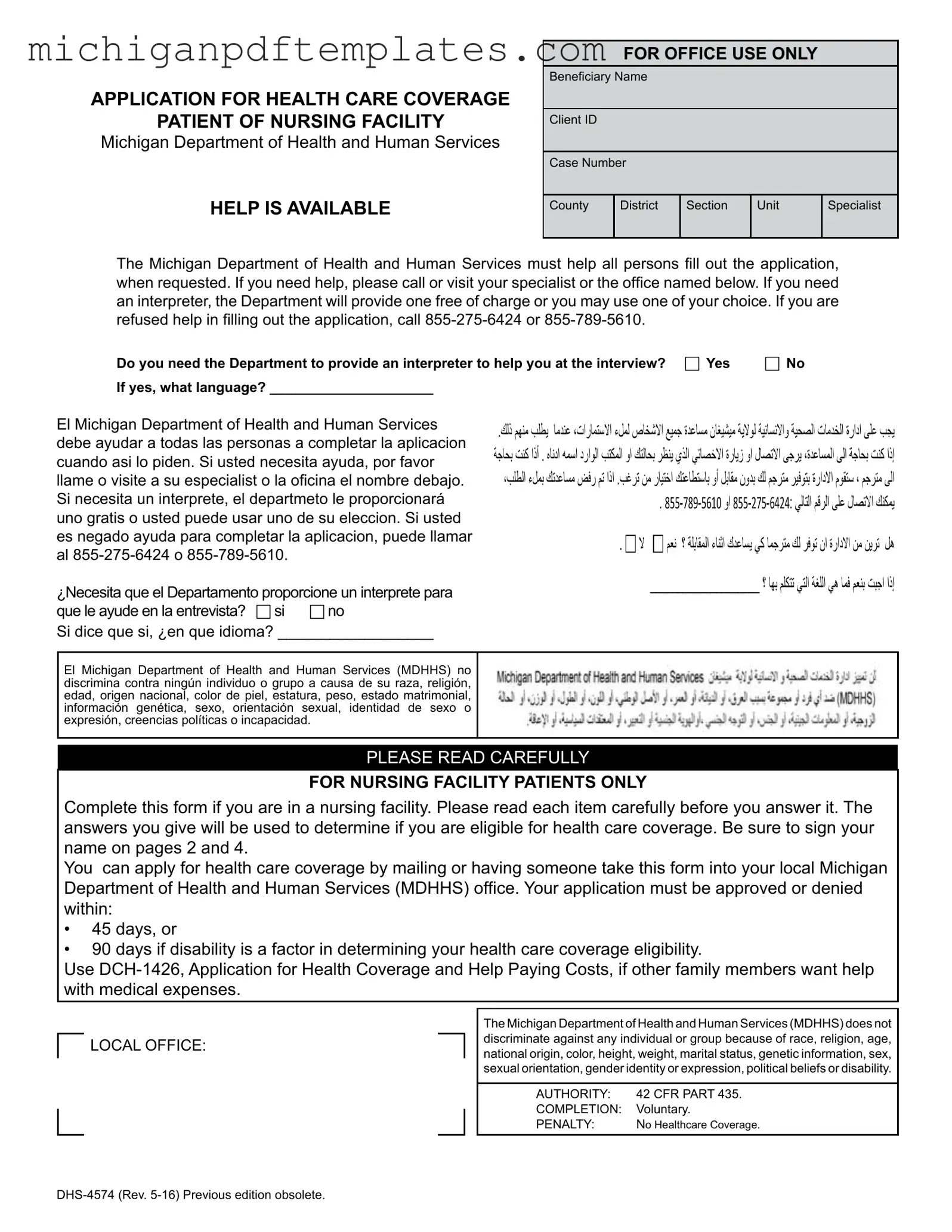Fill in Your Michigan Dhs 4574 Form
The Michigan DHS 4574 form is an application for health care coverage specifically designed for patients residing in nursing facilities. This form collects essential information to determine eligibility for health care benefits under the Michigan Department of Health and Human Services. If you are in need of assistance with this application, please fill out the form by clicking the button below.
Get Your Form Now

Fill in Your Michigan Dhs 4574 Form
Get Your Form Now

Get Your Form Now
or
▼ PDF Form
Finish this form quickly and move on
Fill in and complete Michigan Dhs 4574 online quickly.